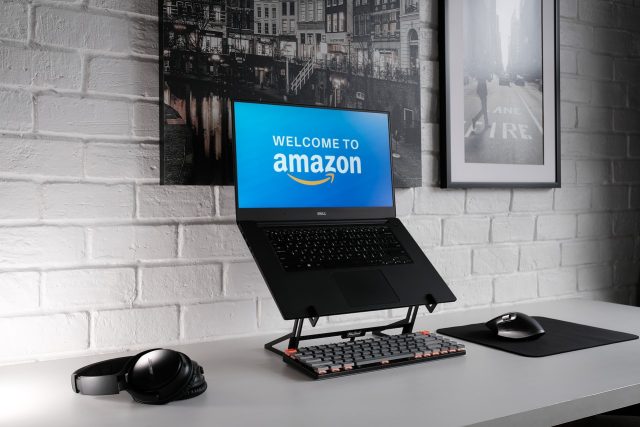Andrew Bary is an associate editor at Barron’s, covering a wide range of financial and investment topics
Billionaire investor Bill Ackman has a flair for the dramatic and often makes bold moves. This year has been no exception.
Ackman made about $1.7bn from a bet on higher interest rates and incurred a $400m loss on a Netflix investment held for just a few months. His Pershing Square Tontine Holdings, the largest special purpose acquisition company, had to return $4bn of investor capital in July after its planned acquisition of a 10% stake in Universal Music Group, the music publisher, ran into regulatory roadblocks.
Most of Pershing Square’s investment in Universal Music ended up with another Ackman vehicle, Pershing Square Holdings, a European-listed closed-end equity fund that holds a concentrated stock portfolio including Universal Music, Lowe’s, Hilton Worldwide Holdings and Chipotle Mexican Grill.
It is now Ackman’s chief investment vehicle, holding $12bn of the $15bn under management at his Pershing Square Capital Management.
Pershing Square Holdings looks like a good investment. It is selling for a 35% discount to its net asset value, one of the steepest discounts of any large equity closed-end fund.
The shares recently fetched about $32. Lately, its net asset value has been about $50 a share. Closed-end funds issue a fixed number of shares and can trade at a premium or discount to their net asset value depending on investor demand.
READ Investors with $27tn jittery over sustainable funds’ performance
Ackman has been on a hot streak after badly trailing the S&P 500 index from 2015 to 2017. The fund returned 58.1% in 2019, 70.2% in 2020, and 26.9% in 2021. It was off 12% through October, against an 18% negative total return for the index.
“The fund is just too cheap,” says Eric Boughton, co-manager of Matisse Discounted Closed-End Strategy mutual fund, which owns Pershing Square Holdings. He says that if the fund moved to a 20% discount to NAV, its average since inception in 2014, the stock would be up about 25%.
Ackman’s fund has net assets (after subtracting $2bn of debt) of nearly $10bn, but a market value of just $6.2bn due to the discount. Ackman is the dominant holder, with a 21% stake worth more than $1bn.
Ackman stopped shorting stocks a few years ago and is no longer an activist investor. He focuses now on higher-quality businesses. The European listing of Pershing Square Holdings has probably contributed to the discount. Some brokerage firms won’t let their retail clients buy the stock.
In his August shareholder letter, Ackman, 56, raised the possibility of the fund becoming a US-listed operating company through control of an American business. Speculation lately is that Ackman might try to combine Pershing Square Holdings with Howard Hughes, a real estate company in which the closed-end fund holds a 27% stake worth about $800m.
Pershing Square has a tender offer to buy more stock. If successful, its stake in Howard Hughes would rise to 40%. Ackman has been chairman of Howard Hughes for the past 12 years.
A deal with Howard Hughes looks like a long shot, however, because its asset base is smaller than that of Pershing Square Holdings, complicating a transition to an operating company based on current regulations.
READ This hedge fund made 35% on its Twitter bet
Howard Hughes shares are down 40% this year to about $60, compared with what the company has said is a net value of $170 a share. The company’s assets include tracts of land at different stages of development near Houston, Phoenix, and Las Vegas.
Higher interest rates have hurt the housing market and the shares, but “what doesn’t slow is the attractiveness of their land position”, says Alex Goldfarb, a Piper Sandler analyst. He rates Howard Hughes overweight, with a $100 price target.
A deal with Howard Hughes, Boughton says, would create a complicated structure, saddle Ackman with a less favourable tax regime, and might do little to address the discount at Pershing Square. The discount persists, in part, because Ackman’s stake means that activists can’t easily target the fund and try to turn it into an open-end fund that would trade at net asset value.
Also, Pershing Square has high fees. It levies a 1.5% base fee and 16% performance fee subject to a high-water mark, meaning that it only gets the fee if it exceeds its highest net asset value. That’s rare among big closed-end funds.
Pershing Square got $464m of performance fees in 2021, plus $146m in base fees. During 2021, the key 13 employees, including roughly eight investment pros, shared $430m — in a year when the fund trailed the S&P 500 after fees.
Ackman defended the firm’s compensation structure in an August shareholder letter, saying it was necessary to attract top investment talent.
Another issue is taxes. The fund is classified as a passive foreign investment company and generates an Internal Revenue Service Form 8621 rather than a 1099 or K-1. Tax expert Robert Willens says the PFIC treatment is more like a US partnership but that “the differences aren’t all that dramatic” relative to mutual funds.
Ackman’s investment style isn’t for everyone, and his firm seems overpaid. But he has delivered for investors and Pershing Square Holdings offers a deeply discounted play on his talents.
This article was first published by Barron’s, a fellow Dow Jones Group title



The Most Read
Сryptocurrencies
Bitcoin and Altcoins Trading Near Make-or-Break Levels
Financial crimes
Thieves targeted crypto execs and threatened their families in wide-ranging scheme
Financial crimes
Visa Warning: Hackers Ramp Up Card Stealing Attacks At Gas Stations
News
Capitalism is having an identity crisis – but it is still the best system
Uncategorized
The 73-year-old Vietnamese refugee is responsible for bringing Sriracha to American consumers
Uncategorized
Electric Truckmaker Rivian, Backed By Amazon, Ford, Raises Whopping $1.3 Billion